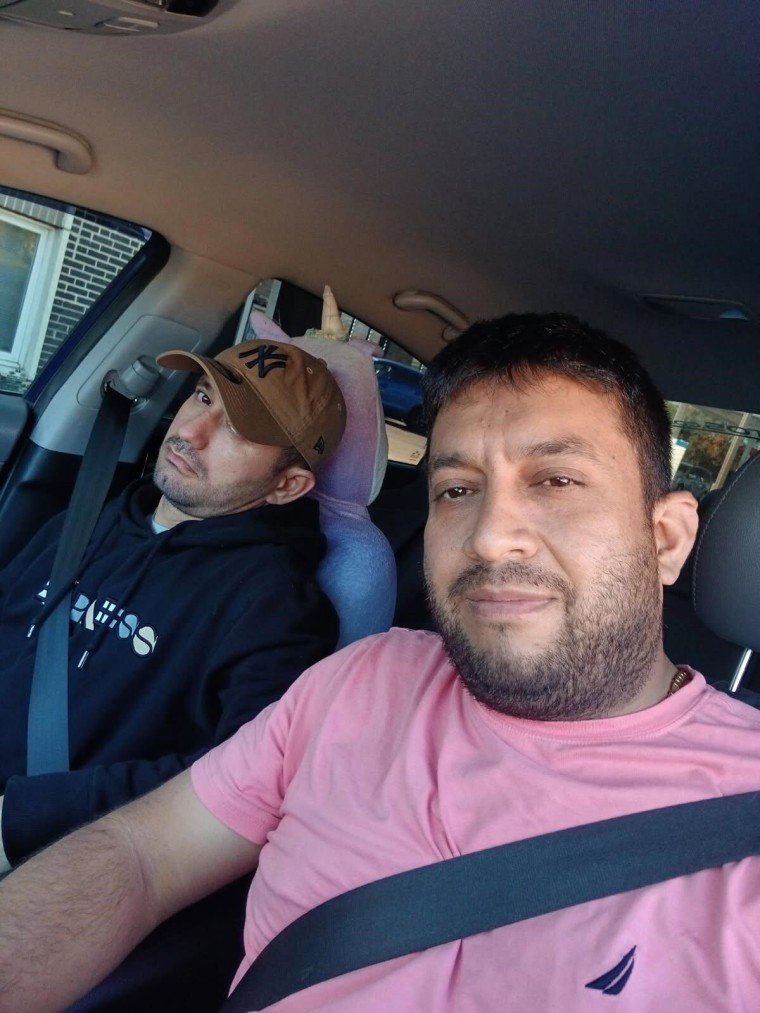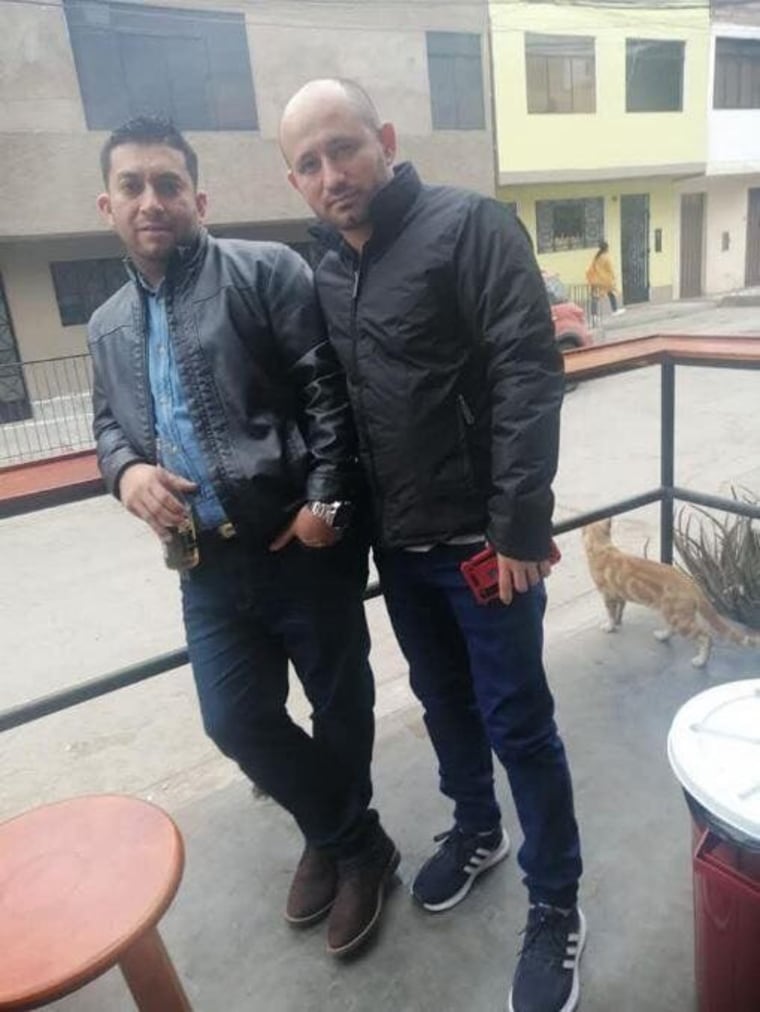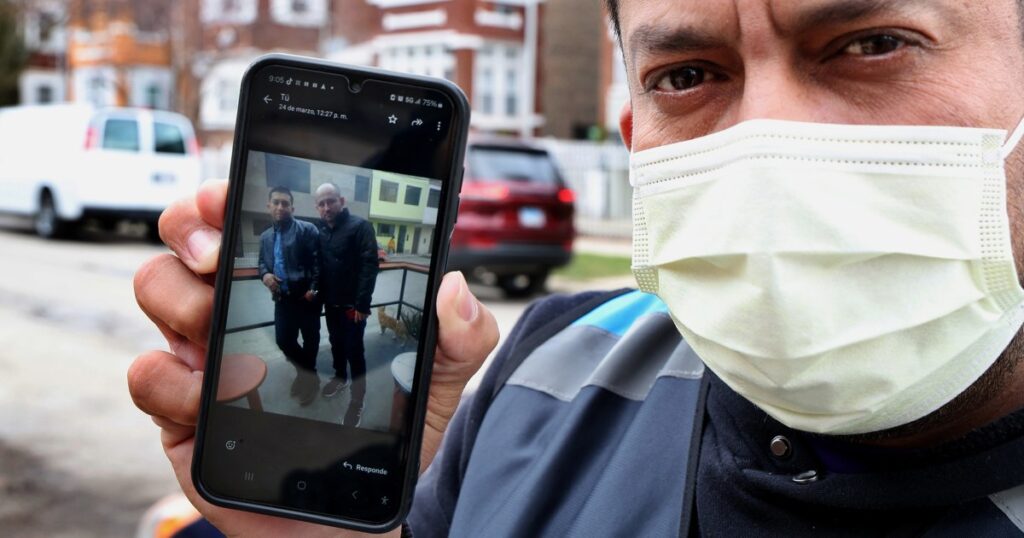Time is running out for José Alfredo Pacheco, a dialysis patient in Illinois who needs a lifesaving kidney transplant. His donor and brother, José Gregorio González, has been in an immigration detention center for nearly a month and is at risk of being deported to Venezuela.
Community members in the Chicago area have been rallying in support of the brothers. They’re gathering at a vigil Monday evening organized by The Resurrection Project, a Chicago-based nonprofit group representing the brothers, to demand González’s release on humanitarian parole so he can donate a kidney to his sick brother.
With deportation flights to Venezuela resuming following a brief suspension on March 8, “there’s incredible urgency because José Gregorio could be deported at any time now,” Tovia Siegel, director of organizing and leadership at The Resurrection Project’s Immigrant Justice Department, told NBC News. The group is providing legal representation to González.
González, 43, arrived in the United States from Venezuela last year to reunite with his brother, who was diagnosed with end-stage renal disease, or kidney failure, in December 2023. Since then, González had been caring for his younger brother. They share the same mother.
Pacheco, 37, goes to a center three times a week at 4 a.m. for four-hour dialysis sessions. On March 3, he was returning home from his dialysis session and González greeted him with breakfast, Siegel said. After having eaten, González stepped outside his home and was approached by several Immigration and Customs Enforcement agents, who arrested him and took him to the Clay County Detention Center in Indiana, where he is being held.

González sought asylum in the United States. But after he did not pass an initial credible fear interview, immigration authorities placed a deportation order on him. He was still allowed to remain in the United States under ICE supervision, which is not uncommon.
Siegel said ICE was aware of González’s location because he had been wearing a GPS ankle monitor as part of his order of supervision. ICE uses such orders to place immigrants in one of its supervision programs, allowing it to monitor and keep tabs on undocumented people. The programs, which are meant to serve as alternatives to detention, help immigration officials keep track of those who are not priorities for deportation or need more time to seek legal alternatives to remain in the United States. According to ICE, nearly 179,000 people are being monitored through such programs nationwide.
Siegel said González has no criminal record and had been complying with the requirements of his order of supervision since he was first placed in the program last year when he entered the United States.
“He was really here taking care of his brother and preparing to donate his kidney to his brother,” she said.
ICE and DHS did not respond to a request for comment.
Without González’s kidney donation, Pacheco will most likely need to wait years to receive a transplant, according to a letter from Pacheco’s doctors obtained by NBC News.
“The waiting time on the cadaver kidney transplant waiting list for Mr. Pacheco is about 4 to 5 years in his blood group. Unfortunately, the mortality on dialysis while waiting for kidney transplantation is extremely high,” the letter reads. “Living donor kidney transplantation ensures the highest chance of survival.”
González is the living kidney donor Pacheco desperately needs, because, according to the letter, even in the case of blood group incompatibility with his brother, González could secure a transplant for Pacheco by participating in a paired kidney exchange, which connects pairs of compatible recipients and donors.

Participating in a paired kidney exchange means González could save two lives, his brother’s and a second kidney recipient’s, Siegel said. “So there are multiple lives, multiple families being harmed, being separated and being denied the lifesaving medical care they need if José Gregorio is deported.
“I think it speaks to José Gregorio’s character,” Siegel added. “It’s under ICE’s discretion whether or not to release him, even temporarily, for him to be able to save Alfredo’s life.”
González told Telemundo Chicago in Spanish last week in a phone call from inside the detention center: “I hope I can go out and achieve that goal of giving my kidney to my brother. I hope he has a lot of faith and patience that we will soon be together and do the transplant.”
In the same interview, Pacheco told Telemundo Chicago he feels like “the world fell on me” since ICE detained his brother. “Give my brother a chance and me a chance to continue living.”


